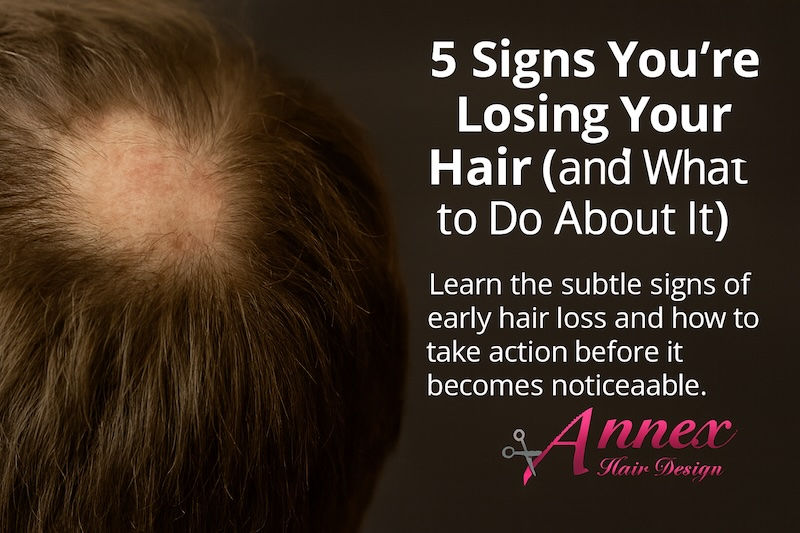5 Early Signs of Hair Loss (and What to Do About It)
- Marsha Claessen

- Aug 24, 2025
- 2 min read
Updated: Sep 13, 2025
1. More Hair in the Brush or Shower
It’s normal to shed some hair daily — usually around 50 to 100 strands. But if you notice clumps in the shower drain, or your brush fills up faster than usual, it could signal a deeper issue.
What to do:
Pay attention to the pattern. Sudden increases in shedding may point to stress, hormone changes, or a medical condition. Don’t ignore it.

2. A Widening Part or Thinner Ponytail
Notice your part looking wider than it used to? Or maybe your ponytail feels thinner? These are telltale signs of early hair loss and gradual thinning, especially for women.
What to do:
Check older photos to compare. If the difference is clear, it’s worth exploring options like toppers or wigs, volume fillers, or a private consultation.
3. Receding Hairline or Bald Patches
For men, a receding hairline can sneak up fast. For women, bald spots or uneven patches may show up near the crown or temples.
What to do:
Don’t wait for it to get worse. There are discreet, natural-looking hair replacement systems that can restore confidence without surgery.
4. Scalp Sunburn or Sensitivity
If your scalp is suddenly more exposed to the sun, or you’re noticing sensitivity where there used to be more hair, that’s a sign your coverage is thinning.
What to do:
Use gentle salon shampoos and protect your scalp. A lightweight hairpiece or topper can shield skin and restore appearance.
5. You’re Avoiding the Mirror or Changing Your Hairstyle to Hide It
This one’s less about hair, more about mindset. If you find yourself avoiding mirrors, photos, or changing your hairstyle to cover up trouble spots — that’s a sign it’s affecting your confidence.
What to do:
You’re not alone — and you don’t have to just live with it. Whether it’s wigs, toppers, or full hair replacement systems, Annex Hair Design & Additions offers private, one-on-one consultations to help you feel like yourself again.
Final Thought
Hair loss happens — to men, women, and everyone in between. The key is recognizing the signs early and knowing your options. You don’t have to wait until it gets “bad enough.”
Need advice? Book a Consultation or give us a call. It’s completely confidential — and judgment-free.





Comments